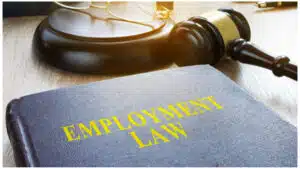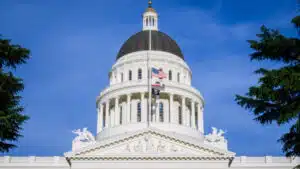
Reggie from the East Bay writes, “I am an African American and use Uber frequently. On multiple occasions, the driver cancels my pickup. This happened again when I was at a bar in downtown Oakland last weekend. I had my friend, who is white, then use the app. He had no problem getting an Uber car for us. What can I do?”
Reggie, I don’t need to tell you that regardless of how technology has changed the ways we interact and conduct business with each other, we are not living in a color blind world. Racism and prejudice remain a pervasive cancer in our society.
“The online economy might make life smoother in many ways, but when it comes to racial discrimination; it might be business as usual.” That is what Aimee Picchi, a reporter with MoneyWatch, wrote earlier this month concerning a recent study published by the authoritative National Bureau of Economic Research on Uber and Lyft and their drivers. The study found “significant evidence of racial discrimination.”
Neither Uber nor Lyft have ever released any internal data on driver practices relating to the race and gender of passengers. As a result, researchers at Stanford, MIT and the University of Washington gathered their own data. They had African-American and white students in Seattle and Boston take nearly 1,500 rides. They found that trip requests coming from African American riders take between 16 to 28 percent longer to be accepted than for white rider on for both Uber and Lyft.
Further evidence of discrimination was shown in ride cancellation rates. Importantly, how drivers chose to accept a ride varies between the two companies. A Lyft driver sees both the name and a photo of the passenger prior to accepting or denying a ride, while Uber drivers see this information only after accepting a request.
Lyft drivers that discriminate can do so prior to accepting the ride request. Uber drivers do not have this “option.” They can only discriminate after first accepting the ride. Thus, if discrimination is pervasive in the ride share industry, the cancellation rate for African Americans would be much greater when they used Uber instead of Lyft.
Sadly, this is exactly what the data showed. The researchers found that the probability an Uber driver accepts a ride, but then subsequently cancels the ride, was more than double for African Americans. Lyft drivers showed no appreciable difference in their cancellation rates between African American and white riders.
Uber issued the following statement after the study was published: “Discrimination has no place in society and no place in Uber.
We believe Uber is helping reduce transportation inequities across the board, but studies like this one are helpful in thinking about how we can do even more.” Significantly, Uber made no commitment to take any action to meaningfully address widespread discrimination by its riders.
Reggie, discriminatory practices of any business operating in California based on race or gender violate California Civil Code Section 51, also referred to as The Unruh Civil Rights Act. It provides, “All persons within the jurisdiction of this state are free and equal, and no matter what their sex, race, color, religion, ancestry, or national origin are entitled to the full and equal accommodations, advantages, facilities, privileges, or services in all business establishments of every kind whatsoever.”
Uber and Lyft are subject to regulation by the California Public Utilities Commission. Reggie, I recommend you visit the commission’s website and submit a complaint concerning your experience. The Commission has the power to force Uber and Lyft to implement reforms to counter discrimination practiced by their drivers.
By attorney Christopher B. Dolan, owner of the Dolan Law Firm. Email Chris questions and topics for future articles to help@dolanlawfirm.com










